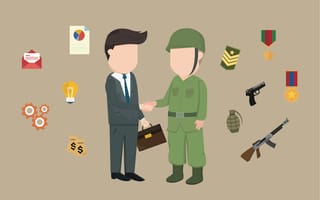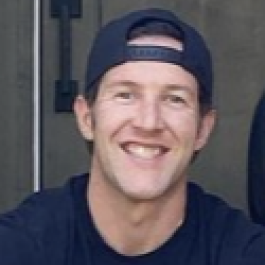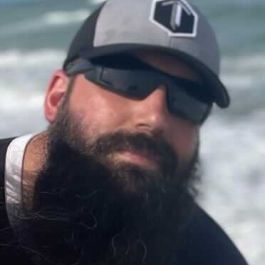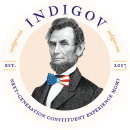Veterans looking to get into the tech industry have plenty of opportunities — government programs and company initiatives alike. With their ability to work under pressure, familiarity with cutting-edge technology and adaptability to new jobs and situations, former members of the military have a strong foundation for success in tech; they just need the opportunity, and sometimes the specific training.
The US Department of Veterans Affairs offers the Veteran Employment Through Technology Education Courses (VET TEC) Program to help access any necessary training. Should someone be interested in a specific tech field — software, programming, data processing or information science, among others — the VET TEC program can provide funding for the necessary education. Meanwhile, large companies like Dell, Intel, Salesforce and Cisco offer specific hiring and training programs for veterans in their own organizations and technology. It is a mutually beneficial arrangement — veterans get access to tech jobs that interest them, and companies get hardworking, qualified employees.
Built In San Francisco sat down with a four military veterans who seized opportunities to work in the tech field. Employees from Reddit, Opendoor, Coursera and Indigov spoke to Built In about how their military service helped them succeed in their career, and gave advice for other veterans seeking to follow the same path.
How and where did you serve your country? What is your current role, and what are you working on right now?
I served in the US Army from 2005 to 2013. Initially I served on active duty with the 4th Infantry Division and then with the 75th Ranger Regiment as an infantryman then finished my career with the 116th Infantry of the VA National Guard while I finished college. I currently lead the sourcing organization on Reddit’s recruiting team. We have team members in North America and I am hiring in Europe to continue to support our international growth efforts. My team is focused on building recruiting strategies to find, engage and bring in the best engineering, product and business talent in the world.
What aspects of your military service have helped you build a career in tech, and what are some new skills you’ve developed since you left the service?
Two of Reddit’s values resonate really well with my military service: “Work hard” and “remember the human.” Never give less than 100 percent in everything you do and always find ways to help the people around you be successful. When you’re in the military, it’s always focused on the now and on the mission at hand. In tech, I’ve learned you need to balance focusing on the now and preparing for the future — and make sure you have a plan to react to pivots in strategy. This is something you get used to in the military and has certainly helped me in my career, and I’ve had plenty of opportunities to improve my forward-thinking.
In tech, I’ve learned you need to balance focusing on the now and preparing for the future — and make sure you have a plan to react to pivots in strategy.”
What advice would you give to fellow veterans who are looking to build a career in the tech sector?
First and foremost, use your GI Bill. Whether it’s to get a college education, to take skilled training or anything that is going to separate you from the pack, use what the government is giving to you. From there, figure out what you’re interested in and would want to do for the long term. Being in tech does not mean being an engineer — you can be in sales, operations, legal, design, marketing and the list goes on. Understand that the market is competitive and you need to lean into making yourself stand out, use your network and don’t give up.
How and where did you serve your country? What is your current role, and what are you working on right now?
I served four years in the United States Marine Corps, and I was deployed to Iraq and Afghanistan during two combat tours. I was stationed in Camp Lejeune, NC, serving as a truck driver, machine gun operator and convoy security operator as well as in other logistical capacities. After hanging up my dress blues, I transitioned into working in tech. Currently, I work at the digital real estate platform Opendoor as the chief information security officer (CISO), leading the IT and security organizations. Thousands of homebuyers and homeowners trust our platform to make buying and selling their home simpler and more convenient, and I’m responsible for protecting the data and technology infrastructure that is core to our business.
What aspects of your military service have helped you build a career in tech, and what are some new skills you’ve developed since you left the service?
Maintaining composure while working through truly complex and at times awful situations is one of the best skills I developed from my time in the Marine Corps. Stoicism when faced with complicated, scary or otherwise unpleasant situations has been a blessing as a security professional and leader. Additionally, it may sound cliche, but the leadership training I received in the military has been invaluable. Specifically, I learned that the most important thing on a team is the people; helping them achieve their best selves is the best way to achieve a high functioning team. Honorable mention: sleeping anywhere.
After leaving the Marine Corps, I was interested in building technical skills and learning everything I could about computers; I was not technical at all prior to entering the security industry. I also acquired offensive security skills, spending most of my career as a penetration tester assessing security by emulating a bad actor — talk about a big change from the Marines.
I learned that the most important thing on a team is the people; helping them achieve their best selves is the best way to achieve a high functioning team.”
What advice would you give to fellow veterans who are looking to build a career in the tech sector?
While we learn a lot that will make us successful from our time in the military, almost more importantly we have the opportunity to learn what not to do or how not to be. Be open minded to the fact that while your service is important and worthy of appreciation, the civilian world is not the military — and knowing what to keep and what to let go of will be the deciding factor in your success.
Many tech companies, including Opendoor, offer resources and support for diverse groups and communities, including veterans. We’re actively hiring across organizations at our company and would love to hear from you. Check out open roles.
How and where did you serve your country? What is your current role, and what are you working on right now?
I enlisted in the Army in 2009 and spent almost four years as an Abrams tank mechanic stationed at Fort Bliss, Texas. I was accepted to attend OCS in 2013 and earned my commission as a 2LT in the Signal Corps. I served for three years as commissioned officer and was stationed at Camp Marmal, Afghanistan and Schofield Barracks, Hawaii.
Now I am a principal enterprise implementation manager. I support customers worldwide and help companies offer Coursera’s catalog of courses and projects to their employees. I have worked with Fortune 500 and smaller organizations to help their talent learn, change and grow. I also lead Coursera’s social impact initiatives for the military community, including partnerships with nonprofits to provide free access to Coursera to transitioning and transitioned service members and their spouses. I recently led a project with the USO and Cory Boatwright, a veteran advocate. They created a course on Coursera to teach the how behind a successful transition out of the military — for both military members and their families. It’s called “Making Your Military Transition a Transformation” and it is available for free on coursera.org. I highly recommend it!
What aspects of your military service have helped you build a career in tech, and what are some new skills you’ve developed since you left the service?
Several aspects of my military career have been transferable. The ability to adapt and learn quickly, the ability to perform under pressure and the ability to be relentless in pursuit of solving a problem have all been key to my success and all are skills that I honed in the military. In the military, you cannot just say “I don’t know how to do this” and expect that your commander or platoon sergeant will accept that answer. In the military we are constantly solving problems and finding an answer, whether that is looking through technical manuals or asking our more experienced peers and leaders. This skill is an absolute must at Coursera and many other innovative tech companies, where so much knowledge is discoverable in places like Stack Overflow, internal knowledge management systems and from your peers.
In the military, you cannot just say “I don’t know how to do this” and expect that your commander or platoon sergeant will accept that answer.”
What advice would you give to fellow veterans who are looking to build a career in the tech sector?
First and foremost, I would recommend starting the transition as early as possible, and enrolling in Cory’s free course “Making Your Military Transition a Transformation,” which we created in partnership with the USO. The exercises can be tough; they will help you assess not only your current capabilities, but also where you lack certain hard skills so that you can work to develop them. I would recommend connecting with a Veterans Service Organization (VSO) early on in the transition process and leveraging their expertise and connections. Find a VSO that partners with Coursera and request access to the Coursera offering to develop any skills that you may need to develop — whether that is software engineering, agile project management, product management, leadership or any other skill that your mentors recommend.
How and where did you serve your country? What is your current role, and what are you working on right now?
I am still a reservist with the US Navy. I am currently the executive officer at Maritime Security Security Squadron 8 Company C. I have deployed to the Horn of Africa and various other assignments within Europe and the US. I am the CISO at Indigov, where I am responsible for the security and implementation of compliance frameworks.
What aspects of your military service have helped you build a career in tech, and what are some new skills you’ve developed since you left the service?
My training in the military has helped me pick up new technology quickly and fill needs in a fast-moving startup area. The military really teaches you to invest in your people and utilize teamwork to accomplish goals.
The military really teaches you to invest in your people and utilize teamwork to accomplish goals.”
What advice would you give to fellow veterans who are looking to build a career in the tech sector?
Use your experience and resources — GI Benefits, USO and other veteran support programs — to get certifications in highly-demanded sectors like AI, machine learning, security and DevSecOps. Use your networks like LinkedIn to help connect to organizations and people you have worked with, and let them know about the additions you have made to your experience.
















_1.jpeg)